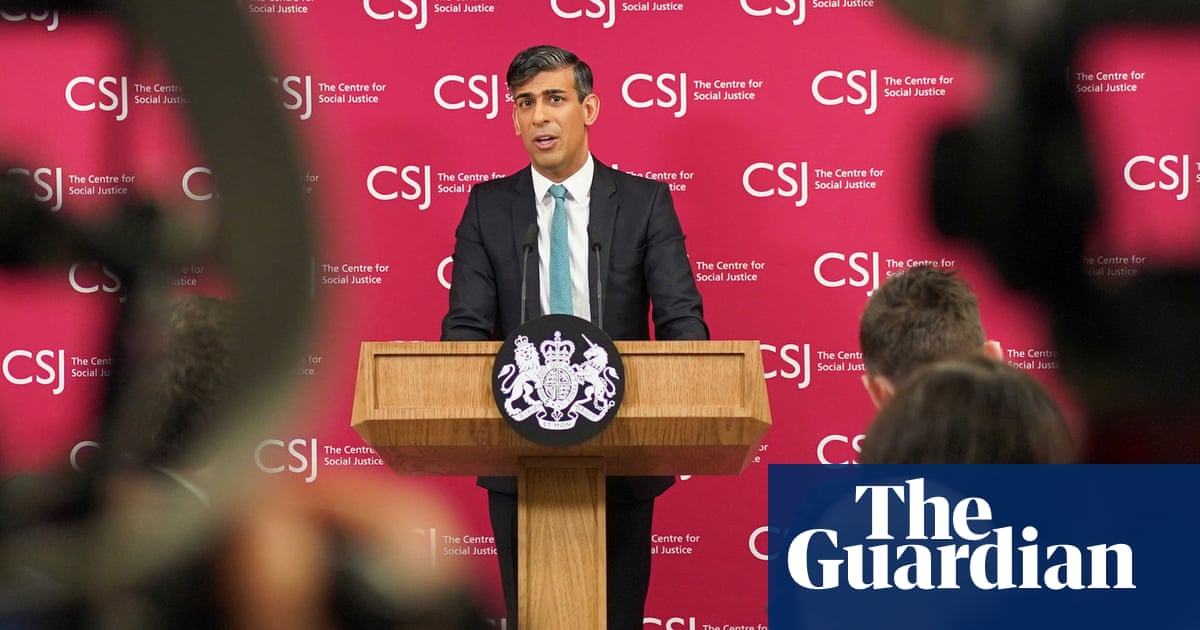
Rishi Sunak has announced fresh curbs on disability benefits, saying he wants to explore whether some cash payments to claimants suffering from mental health conditions could be replaced by treatment or access to services.
In a speech on welfare, the prime minister said he was launching a consultation on the personal independence payment (Pip), a non-means-tested benefit paid to disabled people to help deal with the extra living costs caused by long-term disability or ill health.
Sunak said Britain was proud to have a strong safety net of welfare payments to those who needed them but he also said the country had a “sicknote culture” that needed to be tackled.
He said “something has gone wrong” since the pandemic to increase the number of economically inactive people who are long-term sick, especially with mental health conditions.
“Most worrying, the biggest proportion of long-term sickness came from young people … parked on welfare,” Sunak said.
He said the country could not afford the “spiralling” disability welfare bill of £69bn, which was now more than the core schools budget, and claimed the Pip) budget was forecast to increase by 50% on the next four years.
Other measures he set out included:
-
Shifting responsibility for issuing “fit notes” away from GPs to other “work and health professionals” in order to encourage more people to get back into work.
-
Confirming plans to legislate “in the next parliament” to close benefit claims for anyone who has been claiming for 12 months but is not complying with conditions on accepting available work.
-
Asking more people on universal credit to look for more work by increasing the earnings threshold from £743 a week to £892 a week, so people paid below this amount have to seek extra hours.
-
Confirming plans to tighten the work capability assessment to require more people with “less severe conditions” to seek some forms of employment.
On the review of Pip, Sunak said it may be right to pay one-off costs for adaptations but that the payments may not need to be ongoing.
The prime minister said the government would also look at whether more medical evidence about conditions should be provided, as some payments were made on the basis of “subjective and unverifiable claims”.
He said some people with mental health conditions may be better served by treatment and access to therapies rather than cash payments.
Almost 2 million people in England are on NHS waiting lists for mental health treatment.